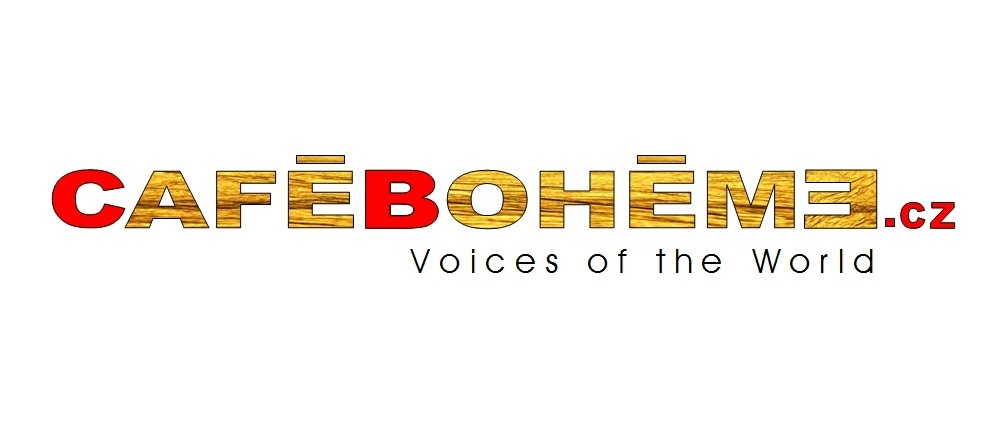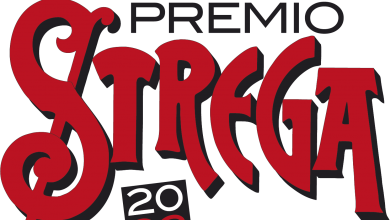
 “A unique collection of samizdat and exile literature protected by UNESCO as a World Heritage Memory. A meeting with its director and founder, Jiří Gruntorád”
“A unique collection of samizdat and exile literature protected by UNESCO as a World Heritage Memory. A meeting with its director and founder, Jiří Gruntorád”
The door of what looks like a regular flat on the third floor of Senovážné náměstí 2, not far from Wenceslas Square, is open by a young man with very long hair wearing a black shirt with the imprint of an American hard rock band. Looking at him we stood surprised for a moment, as in common knowledge librarians have usually another appearance; on the other hand, the library we were about to enter is a truly special one.
“Prohibited books, library of samizdat and exile literature”, this is the complete name of the book collection and documents sheltered in the heart of Prague, mostly known as “Libri prohibiti”, perhaps not as famous as the libraries of Strahov and Klementium, but certainly not less interesting.
“Libri prohibiti” is a name that evokes the censures and inquisitions of a distant past. Even so, this place is a witness to a very recent period that has profoundly marked the history and culture of Czechoslovakia: the communist era.
Created on October 22nd 1990, during the months following the Velvet Revolution, this documentation center started up as a dissemination and conservation location for written production. It contained mainly samizdat, belonging to authors and publishers whose ideas were considered inconvenient and were carefully being censored by the authorities of those times. The creation of the library was made possible due to the financial support of cultural environment representatives including the President Vacláv Havel, and was located in Podskalská Street, Prague 2, only to be moved later on to its current location.
location for written production. It contained mainly samizdat, belonging to authors and publishers whose ideas were considered inconvenient and were carefully being censored by the authorities of those times. The creation of the library was made possible due to the financial support of cultural environment representatives including the President Vacláv Havel, and was located in Podskalská Street, Prague 2, only to be moved later on to its current location.
The director, Jiří Gruntorád, dissident publisher and intellectual, one of the signatories of “Charter 77” and imprisoned several times during the communist era due to his activity, welcomed us in the bright reading room which serves both as bookstore and exhibition place.
The first group of works conserved there consisted of publications edited by Gruntorád, seized by the authorities and returned to him only after the fall of the regime, in 1990. “The main reason  that inspired me to create this library –explains Gruntorád – was the belief that people should have the right to read and learn about these books. When they were returned to me, I began to wonder what could I be doing with them, and I discovered that all libraries and state institutions were still managed directly or indirectly by people connected to the old communist party. Therefore, there would have been no hope for those books, which carried within the opposition or disobedience to the regime, to have reached the public. For this reason I decided to open this library”.
that inspired me to create this library –explains Gruntorád – was the belief that people should have the right to read and learn about these books. When they were returned to me, I began to wonder what could I be doing with them, and I discovered that all libraries and state institutions were still managed directly or indirectly by people connected to the old communist party. Therefore, there would have been no hope for those books, which carried within the opposition or disobedience to the regime, to have reached the public. For this reason I decided to open this library”.
 The term “samizdat” derives from Russian and refers to works published by dissident writers and publishers belonging to the Warsaw Pact countries and not authorized by the government. For a book to become inconvenient to the regime, and therefore unauthorized – explains the director showing us a typed Czech translation of Eugenio Montale’s collection “Corno inglese” (“English Horn”) – was often not due to its content but simply to the fact that the translator was considered not aligned with the government. The purpose of the collection “Libri prohibiti” was, and still is nowadays, to collect and preserve all those samizdat documents, and not only, published by Czech and Slovak dissident editors and by writers of other nationalities, in their home countries and in exile during the years of the communist censorship.
The term “samizdat” derives from Russian and refers to works published by dissident writers and publishers belonging to the Warsaw Pact countries and not authorized by the government. For a book to become inconvenient to the regime, and therefore unauthorized – explains the director showing us a typed Czech translation of Eugenio Montale’s collection “Corno inglese” (“English Horn”) – was often not due to its content but simply to the fact that the translator was considered not aligned with the government. The purpose of the collection “Libri prohibiti” was, and still is nowadays, to collect and preserve all those samizdat documents, and not only, published by Czech and Slovak dissident editors and by writers of other nationalities, in their home countries and in exile during the years of the communist censorship.
Nowadays, the library managed by Gruntorád contains about 40,500 works, 3,400 periodicals and other 5,000 pieces of audiovisual material including audio recordings of lectures and seminars, documentaries, musical performances and even amateur films of those years. Additionally, the documentation center also gathers a vast collection of posters, fliers, leaflets and other printed materials of great historical value. There are books especially in Czech and Slovak, but also translations into other languages on various topics like ecology, esotericism, literature, economics, religion and much more. There are also works published in countries like Great Britain, USA, Canada and other states that encountered the presence of Czechoslovak exiles and dissidents.
 The archives of the “Charter 77” are extremely relevant. They gather original documents of the association’s signatories and organizers symbolizing the Czechoslovakian dissidence. There are political comments, petitions, letters (about 1730 pieces), unpublished works and manuscripts. Just as important is the complete archive of the Defense Committee of VONS (Výbor na obranu nespravedlivě stíhaných), an organization founded in 1978 to support those who were unjustly persecuted by the regime.
The archives of the “Charter 77” are extremely relevant. They gather original documents of the association’s signatories and organizers symbolizing the Czechoslovakian dissidence. There are political comments, petitions, letters (about 1730 pieces), unpublished works and manuscripts. Just as important is the complete archive of the Defense Committee of VONS (Výbor na obranu nespravedlivě stíhaných), an organization founded in 1978 to support those who were unjustly persecuted by the regime.
Nowadays, the Library is supported by the Czech Ministry of Culture, the Ministry of Foreign Affairs, and the city of Prague and by many private individuals and associations. Due to their support, various activities are being prepared including the digitalization of the documents hosted in the library, out of which only the samizdat ones represent over 17 thousand. A great part of the main archive fund consists of documents concerning the violation of human and civil rights in former Czechoslovakia, as well as in other countries of the Soviet Bloc. In fact, the library shelters many paperback documents as well as visual and audio content that concern Poland and the Polish dissidence activities during 1970-1989.
We cannot help but asking the Director what is, according to him, the most important book or the most precious document in the library. “Our collection of magazines and samizdat – emphasizes  Gruntorád – has been included in the UNESCO program as World Heritage Memory, an important recognition that acknowledges the value of this collection. I wouldn’t be able to answer this question, for me everything in here is very important and precious”.
Gruntorád – has been included in the UNESCO program as World Heritage Memory, an important recognition that acknowledges the value of this collection. I wouldn’t be able to answer this question, for me everything in here is very important and precious”.
Among the various projects promoted internationally by “Libri prohibiti” is the long-term support granted to the independent Cuban libraries that help providing alternative information sources to citizens. Another project supported by the Library, together with Radio Free Europe, is “Women of Charter 77 and the new dissidents” that focuses on the women that signed the critical document against the regime’s conduct.
The range of activities offered by the Documentation Center to its users is particularly wide containing themed nights, readings, poems recitation, exhibition of works of art and other interesting events that turn around the main subject of the exile and dissidence literature. The library issues as well a newsletter and is active in the publishing field with the publication of monographs, catalogs and other materials.
Before saying farewell, we still asked Gruntorád what he particularly remembered about that period when many intellectuals were forced to circulate their works in a clandestine and illegal manner. “I remember that period as a particular and interesting time when people had a real interest for something, were motivated to take risks for freedom, and in some cases people were risking their lives, dying to obtain something. I believe that the right of expression is something really fundamental and I hope that the period of restrictions will never return”.

This article was published by Mauro Ruggiero in “Progetto Repubblica Ceca” on 03 Mar. 2018.
http://www.progetto.cz/la-biblioteca-proibita-nel-cuore-di-praga/?lang=en




